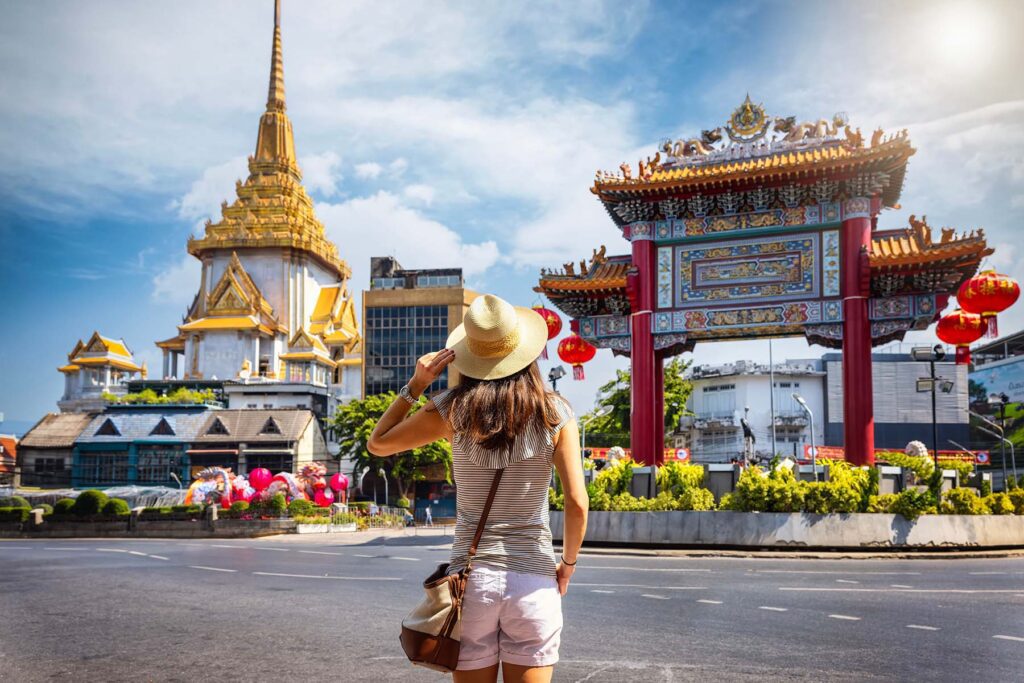
Skift Take
Thailand’s move to blend AI with spiritual tourism isn’t just a clever marketing tactic, it’s about reshaping what travel means in a digital world. The real question is, will other destinations jump on this trend, or will Thailand’s unique mix of ancient beliefs and modern tech stay one-of-a-kind?
Tourism Authority of Thailand has introduced an AI-driven initiative designed to boost spiritual tourism. “Mu Thua Thai Pai Kub AI” offers a modern twist on traditional astrology, aiming to personalize travel experiences.
The initiative, developed in partnership with private-sector tech firms, uses artificial intelligence to recommend spiritual and cultural sites tailored to tourists’ astrological signs and birth dates.
The app, set to launch by the end of 2024, will suggest everything from sacred temples and natural landmarks to local cuisine spots and traditional handicraft markets.
The initiative also includes a tarot card design contest, inviting students from Thai art schools to merge cultural creativity with fortune-telling. Winning designs will become part of the app’s offerings, reinforcing the local culture while engaging younger audiences.
The Rise of the Spiritual Economy: What’s at Stake?
The “Mu Thua Thai Pai Kub AI” initiative is part of a broader strategy by TAT to tap into what is being dubbed the “spiritual economy.” This strategy aims to turn Thailand’s rich heritage and belief systems into a unique selling point. The country’s faith-based tourism market was valued at THB 15 billion ($447 million) in 2023, an increase from THB 10.8 billion ($322 million) in 2019.
The global market is also growing, with faith-based tourism expected to reach $40.9 billion by 2033, according to Future Markets Insight.
But the appeal of Thailand’s spiritual tourism isn’t just for domestic travelers. The country also gets visitors from neighboring countries like Laos, Vietnam, Malaysia, and China.
Last year, Thailand launched an e-book “Connecting to Spiritual Thailand: A Guide to 60 Powerspots” to foster understanding of everyday Thai religion among foreigners.
The Tourism Authority of Thailand also organised an event last year promoting 12 spiritual tourism routes throughout the country.
Gen Z Is Turning to Faith-Based Travel
While spiritual tourism has always been part of Thailand’s appeal, younger generations are embracing it like never before.
Generation Z is driving a surge in demand for faith-based experiences. A survey by marketing company Hakuhodo International Thailand found that over 88% of all Thai generations hold beliefs in the power of sacred objects, but it’s Gen Z that’s pushing this interest into the digital space.
These youngsters often discover spiritual products — like deity-themed phone wallpapers, lucky charm bracelets, and gemstone necklaces — through social media.
Social media platforms like TikTok and Instagram have played a significant role in making spirituality cool again. Influencers share their experiences at sacred sites or review astrology apps, turning faith-based travel into a trendy pastime.
‘Muketing’: How Brands Are Tapping into the Demand for Spirituality
Thailand’s spiritual tourism boom has spurred the rise of “Muketing,” a blend of the words “Mutelu”— a Thai reference to mystical beliefs — and “marketing.” This trend highlights how brands are tapping into spiritual themes to attract consumers. Major telecom providers and cosmetic brands have creatively integrated concepts like “lucky phone numbers” and “fortune-enhancing” ingredients into their offerings, positioning these elements as ways to attract good luck and prosperity.
A survey by social media data firm Zanroo reveals that Gen Z is particularly captivated by “Mutelu” content, engaging with belief-related topics more than any other generation. The data shows a staggering 3.91 billion social media interactions around Mutelu in Thailand, with TikTok accounting for 94% of these engagements and YouTube 4.6%.
Gen Z contributes to about 50% of these interactions, exploring a range of topics like fortune-telling, luck-enhancing beauty and fashion trends, and products that promise to attract love. This reflects a broader cultural shift where spirituality meets commerce.
